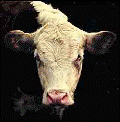Animal Science, Department of

Department of Animal Science: Dissertations, Theses, and Student Research
Date of this Version
Fall 11-2010
Document Type
Thesis
Abstract
The objective was to test the addition of Avizyme ® 1502, a blend of protease, amylase and xylanase (Danisco, UK Ltd.) and a phytase in laying hens fed corn-soy diets containing Dried Distillers Grains (DDGS), Meat and Bone Meal (MBM). 384 Hy-Line W-36 laying hens were used in this study from 24-52 weeks of age. There were 12 replicate pens with 4 hens per pen, thus 96 pens in total. The study consisted of 8 dietary treatments arranged in a 2x2x2 factorial design. The factors were: diet (containing DDGS or MBM), metabolizable energy (ME) level 2930 Kcal/kg (Phase 1), 2880 Kcal/kg (Phase 2) or 2860 Kcal/kg (Phase 1), 2800 Kcal/kg (Phase 2), and two enzyme levels (0 or 0.0375% Avizyme®1502) to provide protease at 8000 U/g, amylase at 800 U/g, and xylanase at 600 U/g of product. All diets contained Phyzyme® at 60 g MT (~300 FTU) and were formulated to contain 0.30% avP and a Ca adjustment as recommended by Phycheck software tool (10% decrease). Response variables measured: daily egg production, biweekly egg weight, weekly feed intake, body weight, Haugh unit, yolk weight, albumen weight, shell weight, shell strength and specific gravity were taken monthly. During Phase 1 (24-35 wks), there were no significant differences between the diets for production parameters. There was a significant time effect for the last three weeks (wks 10, 11, 12) where feed intake decreased 4-8 g per bird per day (p<0.05), most likely due to heat stress. There were no differences noted between treatments for any other parameters measured. In Phase 2, there was a significant effect for feed intake between moderate and low ME diets, with the low ME diets having a greater feed intake overall (p≤0.03). However, there were no other significant differences between treatments for any other parameters measured. Thus, decreasing ME, P and Ca with the addition of enzymes has no negative effect on egg production or quality.
Adviser: Sheila E. Scheideler


Comments
A THESIS Presented to the Faculty of The Graduate College at the University of Nebraska In Partial Fulfillment of Requirements For the Degree of Master of Science, Major: Animal Science, Under the Supervision of Professor Sheila E. Scheideler. Lincoln, Nebraska: November, 2010
Copyright 2010 Dana L. Hahn